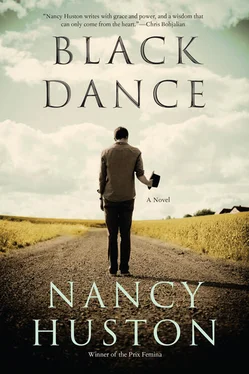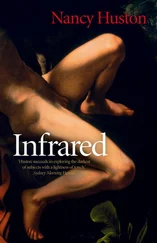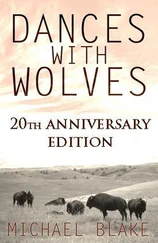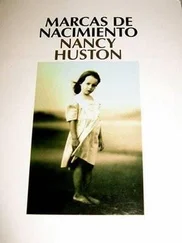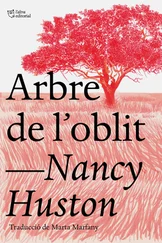to Jean M.
and to Jennifer A.
and thanks to Joseph N.

Litany. Song that signals the beginning of a capoeira roda, before the game begins.
Milo, 2010/1990
DON’T WORRY, ASTUTO, I’ll do the keyboard this time. I’ll capture it — or seize it, as the French say. That was always your job, on pretext that you typed faster than me. . yeah, but chances were you’d either get your computer ripped off in a train station or accidentally erase— Oops, goddamn it! — a whole month of our work including backup, so this time you can relax and let me handle it. Take advantage of the fact that you’re flat on your back and hooked up to a drip to give your ten fingers a rest.
I love you, you bastard. Tell me your tale. Yeah, or at least a piece of it, ha-ha. Don’t make me laugh, you’ll make me cry. Come on, Milo, get serious. In all likelihood, this will be the last screenplay cowritten by Milo Noirlac and Paul Schwarz, directed by Paul Schwarz and produced by Blackout Films — so let’s get it right, babe, let’s get it really right. Kiss me. Come on, kiss me, you meshuga bastard, I won’t catch anything. I love your ass off.
OKAY, THIS IS just a suggestion. . INTERIOR — DAY. The camera finds Milo Noirlac — graying mahogany ponytail hanging halfway down his back, black cowboy hat, cowboy boots, white pants — and Paul Schwarz — wearing a new, unbleached linen suit that makes him look even svelter and more sensual than usual — in the crowded foyer of a tiny cultural center in Rio’s Zona Norte. It’s late morning, they’ve just screened their film for the men and women of the neighborhood who played bit parts in it, the response has been warm, people come up to hug, congratulate and thank them.
Given that the important producer/director of the film has a whole slew of important appointments with important distributors set up for the afternoon, he’ll be driven to Centro by an important taxi. The more modest (though naturally no less handsome) screenwriter announces his intention of returning on foot to their hotel in Gloria. Are you out of your mind? That’s a five-mile walk and it’s forty degrees Celsius out there! says his gifted collaborator and favorite lay, who has never held much truck with high temperatures, as he mops his brow.
But Milo, giving his beloved a last touch on the arm, turns and saunters out into the street. As he moves away, close-up on that beautiful ass of his, charmingly molded by his white pants. Don’t worry, baby — much as I’d like to, I won’t overdo it. . We’ll be with you, inside of you, subjective camera: in your brain we hear the distinctive atabaque rhythm of capoeira— ta, ta-da DA, ta, ta-da DA, ta, ta-da DA . . must be a roda going on nearby.
Upon emerging from the low white building, Milo turns left instead of right on Rua General Roca and heads for the hills. We follow him following the drumbeat beneath the hot sun. If there’s a roda going on, he wants to join it, but he can’t hear the twang of the berimbau, only the drumbeat, ta, ta-da DA, ta, ta-da DA, ta, ta-da DA . . the one we listened to night after night as we lay in bed together in Arraial d’Ajuda — the one you recognized all those years ago on our first trip to Salvador, the one you think of as your heart call, your root call, the rhythm of your mother’s voice. Important to establish that right from the start.
The drumbeat intensifies.
The minute General Roca starts up the hill, the Saens Peña area — a flat, dreary patch of urban sprawl with the sort of gray ten- and fifteen-story high-rises that can be found anywhere in the developing world — falls away and the neighborhood swiftly slides from moderate to abject poverty. No more whites or light browns, nothing but blacks. Milo’s arms swing at his side, his hands are empty. Images of the Dublin slums, the Waswanipi Cree reserve, his father’s rooming house in Montreal ricochet and reverberate in the scorching sunlight. Sweat pours down his brow and neck and back but he doesn’t wipe it off. Men idling in doorways stare as he passes and he lets them stare. .
(Oh, Milo! I once thought of it as rashness; your ex-wife Yolaine used to call it passivity. . If you leave me, you leave me, you once told her, and today, were a crack addict to threaten you at gunpoint, you’d look him calmly in the eye and say, If you kill me, you kill me. . But it’s neither recklessness nor passivity, it’s capoeira. Lack of fear and jealousy, openness, curiosity, indifference — all your character traits derive from the capoeira attitude, which you’d espoused long before you discovered the Brazilian fight-dance.)
As Milo advances the incline grows steeper, the drumbeat louder, the sun hotter. A bright green church looms up on the hill above him and again, because of the color green, he thinks of Ireland, a country he’s never set foot in. Ta, ta-da DA, ta, ta-da DA, ta, ta-da DA . . He sees dilapidated three- and four-story concrete blocks, their walls painted in peeling pastel colors and streaked with graffiti, and because of the corrugated tin roofs, he again thinks of the reserve, which he also doesn’t know. Sunlight. Black people staring at him. Tropical greenery. Tough dusty roots and grasses, leaves and vines. Gutted buildings. Ta, ta-da DA, ta, ta-da DA, ta, ta-da DA. Cement walls give onto gapingly empty ideas of rooms. The rise steepens again. He passes a staircase drowning in creepers and studded with broken glass, sees the remains of a candomblé altar, nothing left of it but an electric cross with all but one of its lightbulbs smashed, a few chipped statues of African gods and goddesses amidst dust and cigarette butts. The world reverberates, beats and glitters, summoning Milo with dreamlike intensity. Ta, ta-da DA, ta, ta-da DA, ta, ta-da DA. .
Turning a corner, he finds himself face-to-face with a wild-haired, middle-aged black woman. His mother’s age? No, his own, give or take a bit. The woman mutters something but he can’t hear what she says because the atabaque beat now fills his head completely. Come, says the drum, you’re almost there . From a terrace higher up the hill, a straggly group of teenage boys frown down at him, hostile, daring him to come up any farther. What’s with this crazy cowboy?
He’s directly below the green church now, and though the drumbeat is almost deafening, instead of a roda he sees only a series of overflowing dustbins. Then his eye catches the smallest of movements amidst the rubbish in the gutter — and he freezes. Abruptly the drumbeat softens into heartbeat. The camera becomes his eye. This was what had summoned him — a human heart beating from within a ripped-off, rolled-up tiny piece of cloth. A discarded newborn. Black. A useless, half-dead, famished, thrown-away boy. The madwoman’s? No, she’s beyond childbearing years. He approaches, his steps making no sound at all. When he reaches down to turn it over, the thing quivers.
Suddenly Milo’s brain fills with a soft cascade of men and women’s voices from the past in French and English, German and Dutch, Cree and Gaelic. They gurgle and babble and blend as he stares at the unwanted infant. Is it breathing? Yes, it is. Milo sits down for a minute on the concrete steps that lead up to the church, in the thick shade of a rubber tree. Gets to his feet again, removes his black Stetson and sets it next to the baby’s head so that its eyes will be protected from the sun, even once the sun has moved. Stands there. Moves a step away, a step back. Crosses the street, looks around, returns to the kid.
Читать дальше
